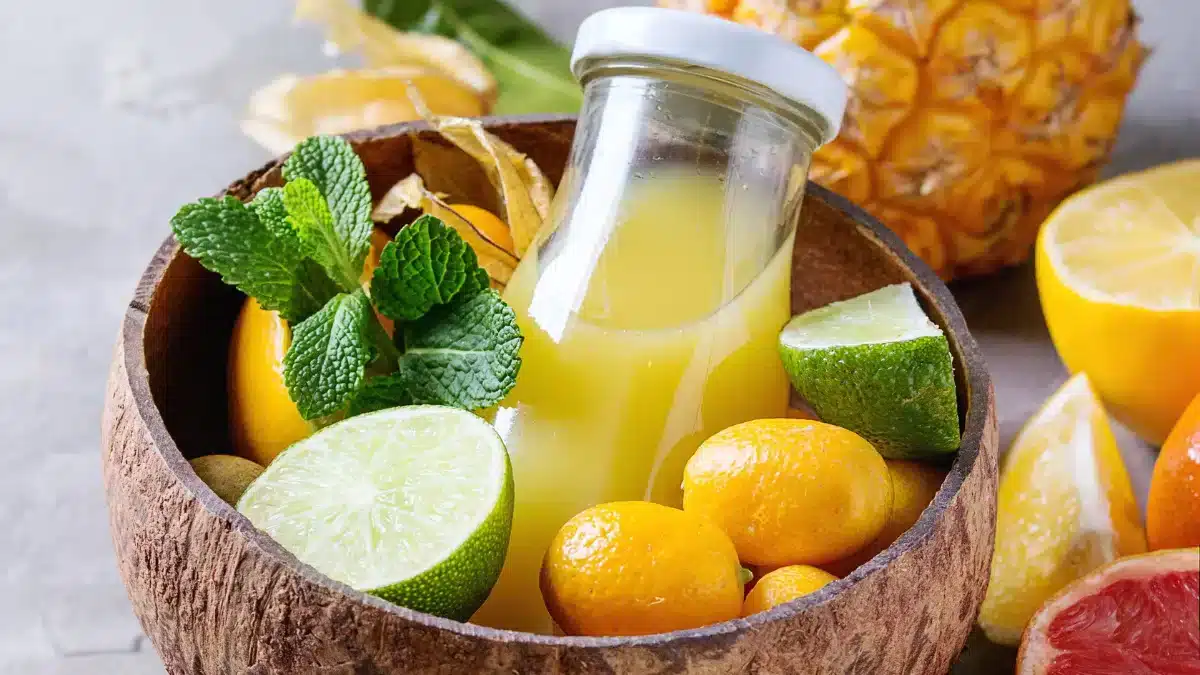What to Drink to Stop Periods? Debunking Myths and Discovering the Truth
For many individuals, the thought of temporarily stopping their period or alleviating its discomfort can be quite appealing.
The internet is rife with information on various drinks that purportedly have the power to halt menstruation.
However, not all of these claims are grounded in science, and it’s essential to distinguish between myths and facts when managing your menstrual cycle.
In this article, we will examine what to drink to stop periods and what other methods are used to stop periods.
Debunking period-stopping myths
Many people have heard about the drinks that can stop the periods, and many concoctions available online can do so.
However, it’s crucial to recognize that some of these ideas lack scientific credibility.
Here are some common drinks recommended to stop the periods:
Drinking lemon juice or salt water
No scientific evidence supports that lemon juice or salt water can stop your period.
These remedies are unlikely to have any significant hormonal impact.
Drinking water with vinegar
Like lemon juice and saltwater, vinegar is not proven to stop menstruation.
It’s essential to be cautious when trying such unverified methods.
Drinking raspberry leaf tea or pineapple juice
While potentially beneficial for other health reasons, these drinks do not have the hormonal impact needed to stop your period.
Safe ways to stop the period

If you’re looking for a safe and effective way to stop or manage your period, consult with a healthcare professional.
The methods recommended work by regulating hormone levels, primarily Estrogen and Progesterone, to prevent the shedding of the uterine lining.
Here are some proven methods for managing your period:
- Birth control pills: They are a reliable option. By continuously taking the active pills, you can maintain elevated Estrogen and Progesterone levels, preventing your period temporarily
WowRx has COCs available at affordable prices.
- Intrauterine Devices (IUDs): Hormone-containing IUDs, such as plastic ones, can lead to lighter periods or even the absence of periods for some individual
- Vaginal rings and patches: These methods release hormones continuously for 21 days, and by replacing them immediately, you can avoid having your period
- Implants: Subdermal implants release Progesterone and can effectively reduce or stop periods. They offer the added benefit of being removable if you wish to revert to your natural cycle
- Birth control shots: Injectable birth control methods are highly effective at suppressing Estrogen and preventing heavy bleeding
Conclusion
The idea of what to drink to stop periods may seem appealing, but it lacks scientific credibility.
Lemon juice, saltwater, vinegar, raspberry leaf tea, and pineapple juice are commonly suggested drinks besides there being no evidence to support this claim.
Instead of relying on unverified methods, it’s advisable to consult with a doctor for safe and effective ways to manage your period.
Hormonal birth control methods, IUDs, vaginal rings, birth control shots, and implants are proven options for regulating menstruation.
It’s crucial to approach menstrual health carefully and seek guidance from healthcare providers to ensure the most appropriate and safe solutions for individual needs.
Frequently Asked Questions
Can drinking lemon juice or saltwater stop your period?
No scientific evidence supports the claim that lemon juice or salt water can stop menstruation. These remedies are unlikely to have a significant hormonal impact. Menstruation is a natural biological process regulated by hormonal changes in the body. Home remedies cannot halt or significantly alter it.
What are safe ways to stop or manage your period?
Safe and effective methods for managing menstruation include hormonal birth control pills, intrauterine devices (IUDs), vaginal rings, birth control shots, and implants. These methods regulate hormone levels to control periods.
Does any foods or dietary supplements helps regulate menstrual cycles?
Certain foods and dietary supplements, such as iron-rich foods, vitamin C, and omega-3 fatty acids, may support menstrual health and help regulate cycles. However, their effects can vary, and it’s advisable to consult with a healthcare provider or a registered dietitian for personalized dietary recommendations.
WowRx uses only high-quality sources while writing our articles. Please read our content information policy to know more about how we keep our content reliable and trustworthy.






